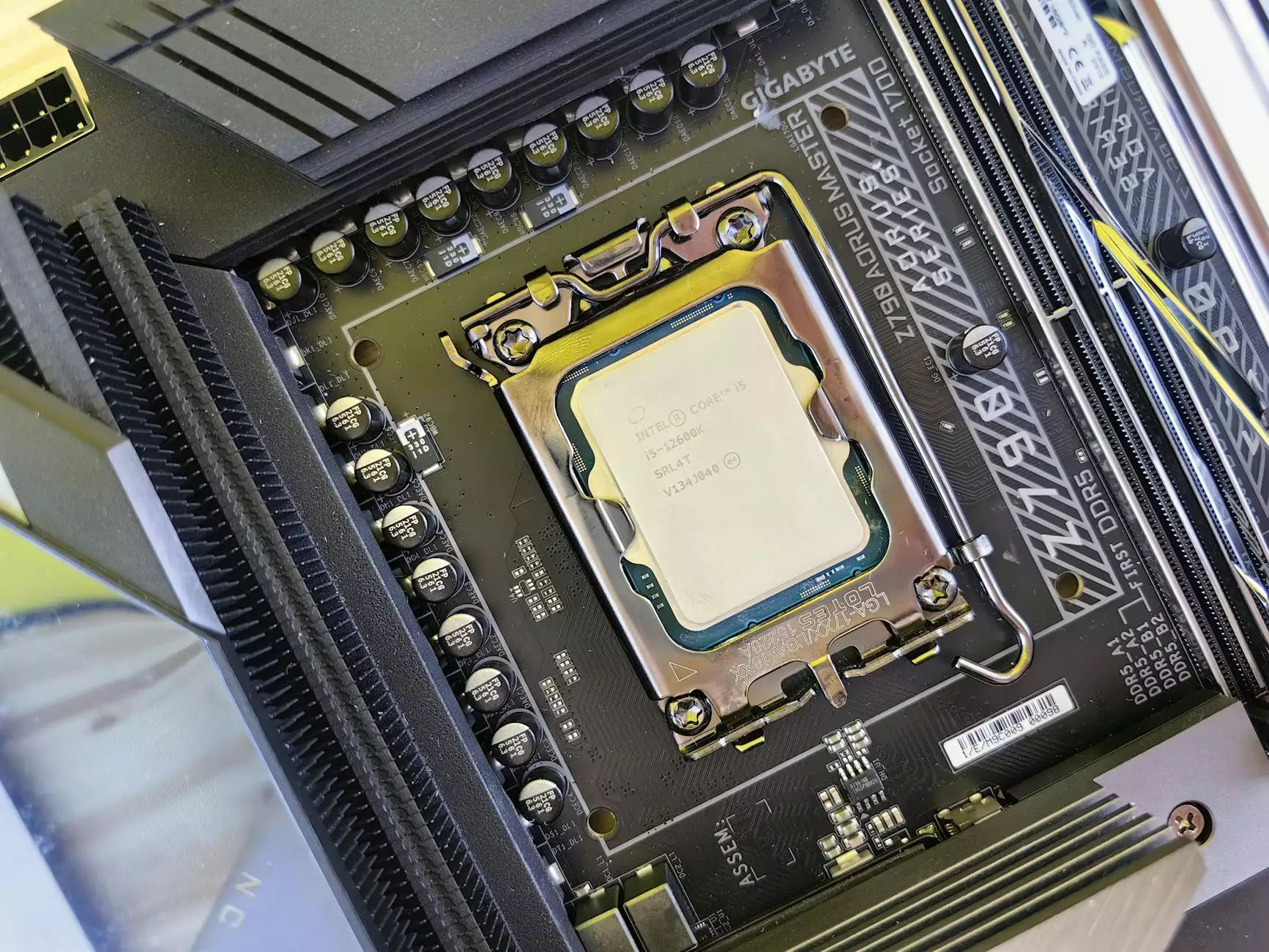The Importance of the Transmission Control Unit (TCU) in Modern Vehicles

The Transmission Control Unit (TCU) is a crucial component of modern automotive technology, playing an integral role in the performance and efficiency of vehicles. In this article, we will delve into the significance of the TCU, its functionalities, and its impact on the automotive industry, specifically focusing on how it contributes to improving driving performance and the overall driving experience.
Understanding the Transmission Control Unit (TCU)
The Transmission Control Unit (TCU) is essentially a specialized computer that manages various aspects of a vehicle's transmission system. It is often referred to as the brain of the transmission and is responsible for ensuring that gear shifts occur smoothly and efficiently. Unlike traditional manual transmission systems, today's vehicles primarily rely on automatic transmissions that utilize TCUs for optimal operation.
Key Functions of the TCU
The functions of the TCU can be summarized as follows:
- Monitoring Performance: The TCU constantly monitors the vehicle's speed, engine load, and throttle position to determine the ideal time to shift gears.
- Executing Gear Shifts: Based on the data it collects, the TCU commands the transmission to shift gears at the precise moment for optimal performance.
- Implementing Adaptive Learning: Most modern TCUs are equipped with adaptive learning capabilities, allowing them to adjust their operation based on the driver's habits and vehicle performance over time.
- Enhancing Fuel Efficiency: By optimizing gear shifts, the TCU plays a significant role in enhancing a vehicle’s fuel efficiency, thus reducing emissions and operating costs.
- Diagnostics and Troubleshooting: The TCU can detect transmission-related problems and communicate them through diagnostic trouble codes (DTCs) to service technicians for timely repairs.
Importance of the TCU in Automotive Technology
The significance of the Transmission Control Unit (TCU) in modern automotive applications cannot be overstated. As vehicles become increasingly sophisticated, the TCU serves as an essential component that supports advanced features and functionalities. Here are several reasons why the TCU is vital:
1. Enhancing Driving Experience
The TCU significantly enhances the driving experience by ensuring smooth gear transitions. When a driver accelerates or decelerates, the TCU instantaneously adjusts the gear ratio, allowing for a seamless transition that ensures comfort and performance. This ability to facilitate smooth shifts not only improves the driver's experience but also contributes to the stability and safety of the vehicle, especially during dynamic driving conditions.
2. Fuel Efficiency and Environmental Impact
In today’s world, automotive manufacturers are under constant pressure to improve fuel efficiency and minimize environmental impact. The TCU plays a pivotal role in achieving these goals. By optimizing gear shifts based on driving conditions, the TCU effectively reduces fuel consumption, thus lowering both operating costs and greenhouse gas emissions.
3. Integration with Advanced Driver Assistance Systems (ADAS)
The integration of TCUs with Advanced Driver Assistance Systems (ADAS) marks a revolution in automotive design. These systems utilize data from the TCU to make real-time decisions that enhance vehicle safety and performance, such as adaptive cruise control, lane-keeping assistance, and collision avoidance systems. As vehicles become more autonomous, the TCU's role as a fundamental component of these systems will only grow.
The Evolution of the TCU
The evolution of the Transmission Control Unit has been remarkable. With advancements in technology, TCUs have transformed from simple mechanical systems to high-tech electronic controllers capable of complex computations. This evolution can be categorized into several key phases:
1. Early Mechanical Systems
In the early days of automation, transmission control largely relied on mechanical linkages and hydraulic systems. These systems lacked the precision and adaptability of modern TCUs, leading to less efficient gear shifts and suboptimal vehicle performance.
2. Introduction of Electronic Control
The introduction of electronic control units marked a significant upgrade in transmission management. These systems integrated basic electronic sensors and simple algorithms to monitor vehicle performance and execute gear shifts more efficiently than their mechanical counterparts.
3. Modern Sophisticated Systems
Today’s Transmission Control Units are equipped with advanced sensors, microprocessors, and complex algorithms, enabling them to learn and adapt to a driver's patterns, preferences, and behaviors. This intelligence allows for highly efficient performance, resulting in better handling, improved fuel efficiency, and enhanced driving comfort.
Common Issues with TCUs
- Faulty Sensors: The TCU relies on various sensors to function correctly. If these sensors fail, it can lead to performance issues, including rough shifting or slipping gears.
- Electrical Problems: As an electronic component, the TCU can be subject to electrical failures due to frayed wires, poor connections, or short circuits.
- Software Malfunctions: Software updates or corruption can lead to erroneous behavior in the TCU, necessitating reprogramming or software fixes.
- Overheating: Excessive heat can damage the TCU. Ensuring proper cooling systems are in place is essential for preventing this issue.
Maintaining Your TCU for Optimal Performance
To ensure that your Transmission Control Unit (TCU) operates efficiently, regular maintenance and awareness of vehicle performance are essential. Here are some tips on maintaining your TCU:
- Scheduled Maintenance: Regular vehicle service checks that include TCU diagnostics can identify potential issues early on.
- Fluid Levels: Ensure that your transmission fluid is always at the appropriate level and is of good quality, as this can affect how well your TCU performs.
- Watch for Warning Signs: Be attentive to symptoms such as rough shifting, delayed engagement, or unusual noises, which may indicate TCU issues.
- Professional Inspections: When in doubt, consult a qualified mechanic or technician who can provide in-depth diagnostics and insights into your vehicle’s TCU.
Conclusion
The Transmission Control Unit (TCU) is indispensable in today’s complex automotive environment. As vehicles evolve, so too does the technology within them. Understanding the TCU's functions, its significance, and how to care for it can empower vehicle owners to ensure optimal driving performance and longevity of their vehicles.
Investing in quality auto parts and supplies, like those available from Shenghai Auto Parts, can enhance the performance of your vehicle's TCU. As the industry continues to innovate, staying informed is key to making the best choices for your automotive needs.
transmission control unit tcu


